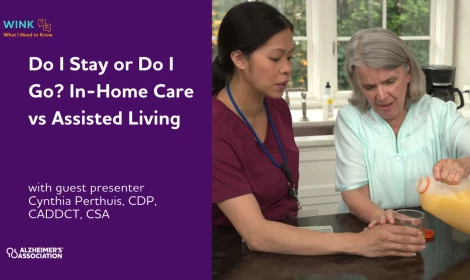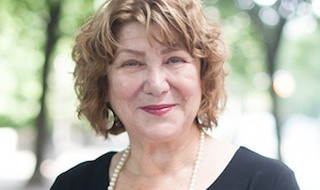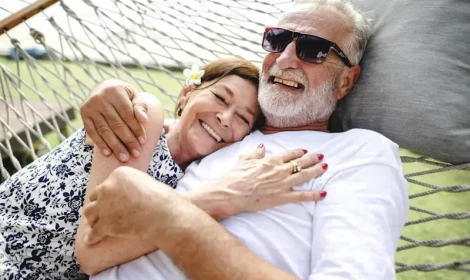From Hospital Health Care Limbo to Home
I spend a lot of time in the hospital. No, I am not fighting a rare disease or having some “work done.” In my line of work, it is well known that hospitals are full of people who need help figuring out the next right step. In my role as Advisor, Senior Living and Care with Senior Care Authority, I know a lot about helping people in difficult situations. It was during one of those hospital visits in late 2023 that I met David.

By Melissa Weigle
Advisor, Senior Living and Care
I spend a lot of time in the hospital. No, I am not fighting a rare disease or having some “work done.” In my line of work, it is well known that hospitals are full of people who need help figuring out the next right step. In my role as Advisor, Senior Living and Care with Senior Care Authority, I know a lot about helping people in difficult situations. It was during one of those hospital visits in late 2023 that I met David.
I was walking the halls with my social worker colleague when I noticed a man aimlessly wandering the hall behind a group of hospital residents. He was dressed in clothes that screamed, “I am not a medical professional!” but the group of eager physicians seemed content with their tagalong. I asked Mary about what I was seeing, and she said, “Oh, that’s just David.”
She went on to tell me that David was in what they refer to as “health care limbo,” and that is it more common than many know. A variety of factors can lead to patients being left in a hospital with no discharge options including language barriers, mental illness, or simply being abandoned by family. In David’s case, he had some new medical needs that his caregiver could no longer handle at home and his financial resources were limited for bringing in help. Because a hospital cannot discharge a patient without a safe place to go, David spent more than 9 months occupying a hospital bed long after being medically needed as the team of social workers and discharge planners tried to find a solution.
Patients in health care limbo cost hospital systems upwards of $2,600 a day. In David’s case, his 325 day stay came with a nearly $850,000 price tag. Not to mention the toll it took on his well-being, spending his days in a clinical setting reserved for the sickest individuals. Mary and I decided to team up and find David a better alternative.
Before anything could be done to assist David with finding a new home, he first needed a legal representative, someone to assist with making health care decisions in his best interest. A guardian is a surrogate decision maker appointed by the court for just these situations. While guardians are largely known for their help with minors, adult guardianship is a growing need, especially in Florida, the state with the second largest number of older adults, expected to grow to almost 33% of its entire population by the year 2030.
The process to obtain a guardian for an adult includes a petition being filed by an attorney to deem competency to make decision, a hearing is held and if deemed necessary, a guardian is appointed. David’s guardian was appointed. But, just because he had a guardian did not mean care could be found.
In many cases of patients in health care limbo, nursing facilities and assisted living communities are apprehensive about admitting a patient that has been in the hospital for an extended amount of time. These patients can be labeled as difficult or raise red flags, at no fault of their own. Just making phone calls and inquiring about openings was not enough in David’s case. The team needed to build a story of need so an assisted living community would consider taking a second look.
And I found just that community nestled in North Collier County. A new team of Executive Director and Sales Manager were open to meeting David and seeing how they could help. On their first visit, David was in the 4th floor hospital lobby, watching the news and paging through the newspaper. He could have easily passed as a nervous family member awaiting news of his first grandchild. After spending time with David and learning about his needs, they saw that David needed out of the hospital and into a room of his own with comfy furnishings, home cooked meals, and daily activities to stimulate his brain and body. They were on board!
The thumbs up from the community was a big hurdle, but not the biggest. We had to figure out how to pay for it. The process of applying for Medicaid is lengthy. If we waited for approval, David could spend another three to six months institutionalized. The team met and the plan was set….we would ask the hospital system to cover the cost of his care until Medicaid services could be approved.
Hospital systems have what is known as a benevolent care program, with a purpose of supplementing the expenses of medical care, which could include writing off a hospital bills, finding accommodations for a mother who needs a place to stay while her newborn is receiving life saving care, funeral and burial arrangements, and in our case, paying for assisted living community until Medicaid could be finalized.
The hospital system approved our proposal, so our final stumbling block had been toppled. We planned discharge for the patient who has three full seasons on the intermediate care floor.
On the day of discharge, the hospital staff threw David a9 going away party, with balloons, noise makers and his favorite meal of roast beef and mashed potatoes, made special by the hospital dining services. His doctors, therapists, nurses, discharge planners, custodians, and hospital administrators showed up to see him off. We found a transport company willing to donate their services to the man who had pulled on all our heart strings. And his first full day at his new assisted living home was marked with eggs to order, cuddles with baby goats, and happy hour with dueling pianos. What a stark change from the clinical halls of the hospital to the homey living room of the assisted living community.
I love what I do, but never more than when I was able to build a team of like minded professionals with one goal: to find David a place to live that was warm, comfortable, and safe.





